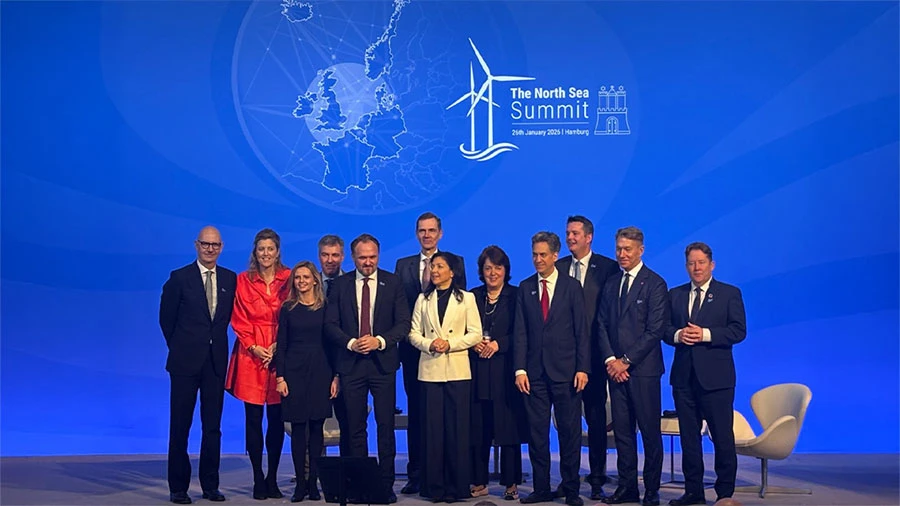Dale Vince urges ministers to ‘optimise’ resources in fossil fuel basin to help smooth transition to renewables
One of Britain’s leading green industrialists has called on the government to offer subsidies to North Sea oil companies to help support a “just transition” to renewables.
Dale Vince, a Labour donor, urged ministers to “optimise” the remaining resources of the declining oil basin as the UK reduces its reliance on fossil fuels. The party has promised to ban new North Sea oil and gas projects.
The founder of Ecotricity spoke out a week after fellow green entrepreneur Greg Jackson, the founder of Octopus Energy and a Cabinet Office adviser, backed calls to restart North Sea drilling.
Vince said the government should scrap the windfall tax on the North Sea and offer subsidies to oil companies that guarantee a minimum price for the barrels of oil and gas they produce.
“Our North Sea is in decline, let’s protect it during the transition and optimise our use of the resources that are left,” he told the Daily Telegraph. “We should scrap the windfall tax and protect the industry and its workers – we need to avoid the destruction of the industry or we will see a repeat of what happened to our coalminers.”
Jackson said last week that relying on North Sea oil and gas would have a smaller climate impact than relying on costly imports from the US and the Middle East, which release more emissions during production and transportation than homegrown fossil fuels.
“When we’re shipping LNG, liquefied natural gas, around the world, it is a lot dirtier than using locally produced gas,” Jackson told the Telegraph. “British gas producers won’t be selling it any cheaper than the global market. But it is cleaner and it reduces the backlash against climate policy. I’ve got no problem with it.”
Labour’s pledge to end new North Sea exploration licences was part of its election-winning manifesto last year and the International Energy Agency said in 2021 that there needed to be no new fossil fuel projects from that point if the world is to stay within safe limits of global heating and meet the goal of net zero emissions by 2050.
The green industry leaders’ comments on North Sea come amid growing pressure from opposition parties to back the industry, which supports about 130,000 jobs and contributed more than £6bn in tax receipts to the government in the last financial year and £9bn the year before.
The Conservative party leader, Kemi Badenoch, said the party would aim to “maximise extraction” of oil and gas in the North Sea if it won the next election. Reform UK has also promised to reverse Labour’s ban as a “day one” priority if it comes to power.
The Guardian reported over the summer that senior government advisers had told North Sea investors that new drilling could still move ahead despite the election promise to ban it, provided the projects were close to existing pipeline infrastructure and did not extend into “greenfield” areas.
“Myself and a number of colleagues have been told that the government is moving towards the idea of allowing new licences,” one energy investor said.
The source said that while Treasury officials were open to considering future North Sea oil and gas projects, the plans were unlikely to be well received by Ed Miliband, the secretary of state of the Department for Energy Security and Net Zero.
Miliband reportedly refused to leave his post in Keir Starmer’s reshuffle last week. The ITV political editor, Robert Peston, who first reported the claims, said it was “one part of the reshuffle that didn’t quite go Starmer’s way”.
A government spokesperson said Vince’s proposal was “not under consideration”, adding: “We are driving forward our mission to become a clean energy superpower, to cut bills for good.
“We are delivering a fair and orderly transition in the North Sea to drive growth and secure tens of thousands of skilled jobs, with the biggest ever investment in offshore wind and three first of a kind carbon capture and storage clusters.”
“From our platform to LinkedIn’s energy professionals – your announcements reach the entire sector’s network, not just our readers.”















